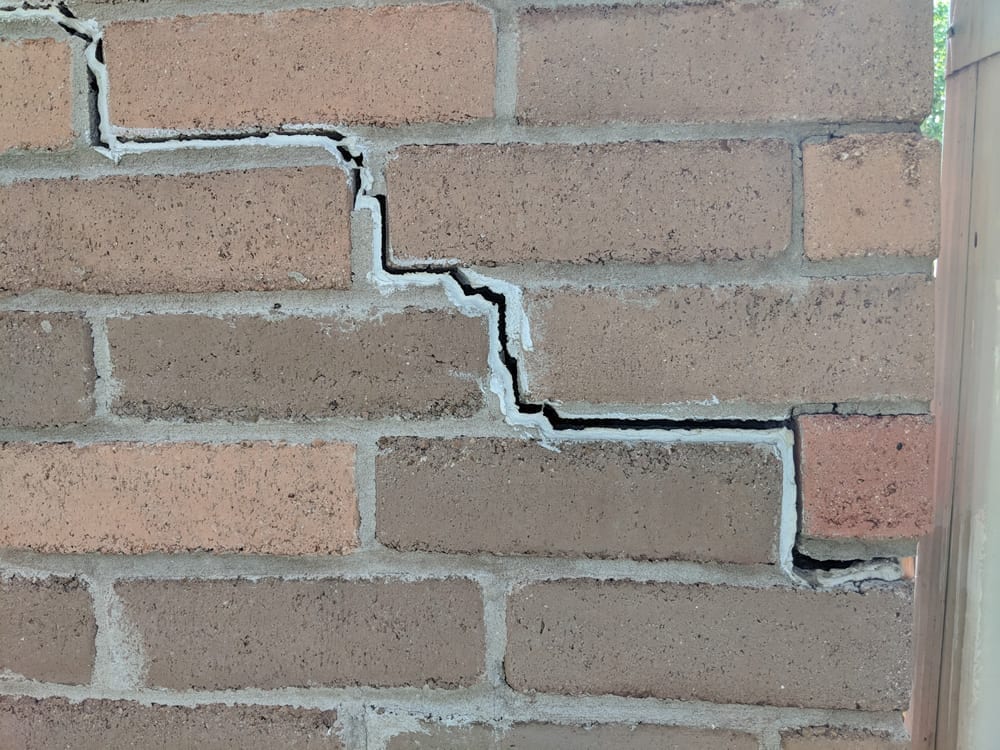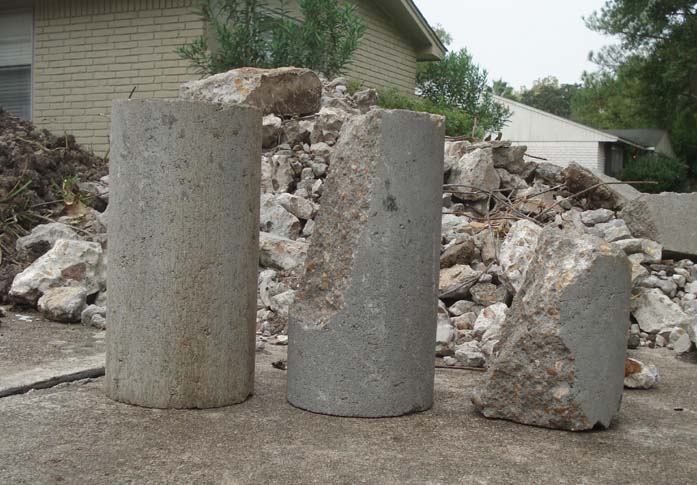It is a maze of conflicting information. Different repair methods, extra fees to re-level what was leveled earlier, mudpumping, and mandatory arbitration when things go bad are just a few of the topics a homeowner has to understand before signing a contract. No wonder the average Texas homeowner is confused.
Most foundation repair companies promote a slightly different repair method but the truth is that virtually all of these repair methods the same from an engineering viewpoint. Almost every foundation repair contractor in Texas uses the same basic method, which is the Pressed Pile method because it is fast, requires little skill, and is very profitable for the repair contractor. Unfortunately, these profit-generating features are not in the homeowners’ best interest.
Do Foundation Repair Companies Have To Be Licensed In Texas?
No. The efforts to require foundation repair companies to demonstrate a level of knowledge, expertise, and satisfactory customer service have repeatedly failed in the Texas legislature. All that is required is a shovel, a hydraulic jack, and a pickup truck to enter this industry.

Homeowners are often confused about the benefits and quality of the different foundation repair methods. There are significant differences in the construction and quality of the most common repair methods. The various Pushed Pile methods cost the contractor about $100 per support column in materials and labor to install while higher quality methods cost the contractor about $300 per support column to install. The most common Pushed Pile repair methods are named Pressed Pile, Pressed Pile with inserts, and Pressed Pile with cable. All of these foundation repair methods have significant disadvantages and A-1 Engineering has called them “useless and temporary”.
Mudpumping is usually only offered by the companies that utilize higher quality repair methods. Mudpumping is a process that fills voids underneath a concrete slab. Without mudpumping a large void could result in the collapse of a portion of the interior concrete slab.
Once the homeowner has decided between a low cost/low quality or higher cost/high quality foundation repair method then the next decision is to select a contractor. Fortunately the internet makes it easy to find companies that have complaints, lawsuits, and bad reviews with a minimum of research time. The Google search engine and the Better Business Bureau are two of the sources most commonly used for this research. A simple search using “foundation repair complaints + company name” can reveal some very interesting information.
How Much Does Foundation Repair Cost In Texas?
The cost question is one of the first questions asked by a homeowner. The answer is “it depends”. It depends on the extent of the concrete slab’s movement (up, down, or diagonally) and how much of the slab is affected. An accurate foundation repair cost estimate is made once the inspector has taken elevation readings of the entire house and inspected the house thoroughly. But one thing is very true, “You get what you pay for”. High quality foundation repair jobs are permanent, with much higher load capacity, and offer more stability with a larger footprint and ability to resist future soil movement.
How Do I Choose A Foundation Repair Contractor?
The internet makes it easy for homeowners to find companies that have complaints, lawsuits, and bad reviews with a minimum of research time. A simple Google search using “foundation repair complaints + company name” can reveal some very interesting information about a company. Once the homeowner has weeded-out the companies with too many consumer complaints then the following factors are most important.
Does the contractor offer a Warranty?
Does the contractor’s contract require the homeowner to pay for future re-leveling of the foundation?
Does the contractor’s contract require the homeowner to settle disputes with Mandatory Arbitration?
Does the contractor have the ability to inspect his installed piers / pilings for proper Depth and Alignment?
How do independent structural engineers rate the contractor’s choice of foundation repair method?
The next learning phase for the homeowner is the contract that is presented by the repair contractor. Mandatory (Forced) Arbitration is used by most foundation repair companies in their contracts. Essentially the homeowner will be forfeiting his/her right to sue the contractor in a court of law if things go sideways. On the surface this seems like a reasonable requirement for all of the parties involved. There is an inherent conflict of interest from the beginning in that the process starts with the repair contractor selecting the for-profit arbitration company. Other aspects of mandatory arbitration are just as troubling – such as no appeal of the arbitration decision, the arbitrator is not required to have a legal background, and the arbitrator’s decision does not have to be explained or disclosed.
The statistics are startling for mandatory arbitration – the consumer (homeowner) loses more than 90% to 95% of the arbitration cases. Mandatory arbitration is a tool that is very effective in defeating consumer complaints, eliminating lawsuits, and guaranteeing victory for the repair contractor. It has been touted as a fair system but it is just the opposite.

Another clause that has crept into foundation repair contracts is the “re-level for a fee” clause. With 50-year droughts, such as 2011, homeowners can expect dramatic soil movement so it is not unusual to have some shifting after a foundation repair job. One, maybe two re-levels might be required in the first 5 years after a foundation repair job. More than two re-levels usually indicates a failed foundation repair job and it is irreversible. It may be fair to ask the homeowner to pay a fee for one or two re-levels but beyond that one has to ask if the foundation repair job is working or not. No homeowner wants to pay for a home foundation repair job and an annual re-level.
Every homeowner with a concrete slab foundation issue should do their homework before hiring a contractor. Read testimonials, talk to independent structural engineers, and examine the contracts carefully. If the contractor’s contract has a Mandatory Arbitration clause then the homeowner is forfeiting their right to sue the contractor in a court of law for sloppy work and a failed repair job. Most homeowners want a quality service at a fair price but that seems to be increasing difficult to find in the home leveling and foundation repair industry in Houston, Sugar Land, and throughout Texas.
